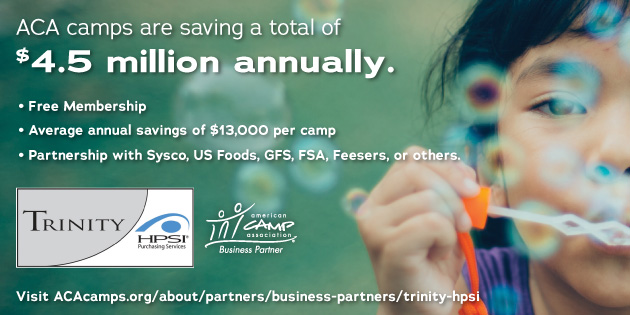This past summer was one of navigating “firsts.” For many camps, it was navigating a reopening in the middle of a pandemic. For others it was dealing with the challenges created by quarantines and positive COVID-19 test results. But even more challenging was a summer run and attended by a collective community of trauma survivors. Whether a counselor or camper lost a relative or friend due to the pandemic or spent an entire year alone in a Zoom room with an online teacher, the collective trauma experienced impacted most, if not all, summer camps.
The calls I received from concerned camp directors across the country centered on campers trying to navigate being around so many people for the first time in over a year. The most common questions received were about whether it was safe to keep campers who had engaged in sexually aggressive behaviors toward other campers and/or counselors in camp. I also received very specific questions regarding those behaviors:
- Were they a form of abuse?
- Were they a reaction by children who had not been around others for so long?
- Did a mandated report need to be made?
- Should a call to law enforcement or children’s services be made immediately?
- What was the best way to ensure this behavior did not continue?
It became clear that for many camps, campers’ reentry to communal camper life presented boundary-crossing behaviors involving inappropriate physical contact and even sexual assaults, for example:
- Touching, grabbing, or pinching other campers’ private parts in a “joking manner”
- Cornering a camper and making sexual gestures and comments toward their body
- Not respecting another camper’s personal space
- Not listening when a camper said “no.”
Across the board, camp directors fielded issues from their staff in droves. Counselors, who are not trained in trauma, became the first responders to their campers’ challenges emerging from the pandemic.
In learning from the lessons of this past summer, I come back to a theme on how camps train on abuse prevention and boundaries. For many years, camps have considered effective training and policies to be a form of risk mitigation, but we must now move to a new framework.
Abuse prevention and boundaries training is not solely about reducing risk, lawsuits, and monetary cost. Camp is an incubator of leaders, multitaskers, and creative thinkers. Our counselors are the first responders. Their leadership skills and future roles as leaders are something worth investing in. That leadership now comes with a front-row seat to the trauma every child and adult experienced during a global pandemic. We need to account for this.
Effective boundaries training in camps now needs to teach staff how to immediately and appropriately navigate what to do when they observe or receive a disclosure of physical/emotional boundary-crossing behaviors or camper-on-camper abuse. Instruction needs to inspire staff to create safe spaces for their campers. When delivered in this framework, this training becomes a vehicle for so much more.
Risk mitigation is a defensive measure. It is finite and focused on protection for that specific summer. Impactful and effective learning should give a counselor a roadmap for how to create safe spaces and navigate boundaries as part of their leadership development, and it should take into account the ethos and goals of your camp, which is why a recorded, one-size-fits all training isn’t the most effective model. When you think through what “effective” means in your camp, think through your staff training as a whole — and when it comes to abuse prevention, ensure you have three key components:
- Mandated reporting and identifying sexual, physical, and emotional abuse
- Understanding sexual harassment and how to navigate and create safe spaces among the staff
- Boundaries with campers, which should include the nexus of how boundaries are connected to grooming behaviors and the “why” behind these rules
When considering boundaries to include in training and categorize for staff, think about them as two buckets: 1) interactions in camp and 2) after-camp boundaries.
Interactions in Camp
Make sure staff understand the number and nuances of important boundaries at camp, including the following:
- Navigating one-on-one interactions
- Emotional boundaries
- Behavioral boundaries
- Physical boundaries
- Bunk- and camp-specific boundaries
- Religious and spiritual boundaries (for some camps)
After-Camp Boundaries
Rules for appropriate interactions between staff and campers don’t end with the camp season. After-camp boundaries include social media and other electronic communication, as well as any other continued interactions between campers and staff post camp.
Staff need to understand that these boundaries can feel amorphous; they are complicated and gray — and when you navigate the gray it is important to discuss, ask questions, and speak up when you see concerning behavior.
Staff can take these themes with them as they continue their development as active members in their communities, both personally and professionally, because navigating the gray is never easy and always requires connecting and communicating with others.
After experiencing this past summer, it is clear that we must shift to a proactive culture where staff are empowered to prevent, report, intervene, and take pride and ownership from their impact. This shift will not only facilitate leadership growth, but it will send a clear message to a perpetrator that they will not get away with blurring boundaries, grooming behavior, or any form of abuse in your camp and in the communities from which your camp draws its campers and staff.
Our camps are the places where changemakers rise and thrive. They create generations of leaders and thinkers. Guided by camp ethos, these leaders can be inspired to cultivate healthy relationships and safe spaces everywhere they go. To speak up, to intervene, and to make a cultural shift — that is the power of camp.
Photo courtesy of Water Wanderings, Hyde Park, VT
Rahel Bayar, CEO of The Bayar Group, is a former sex crimes and child abuse prosecutor who has worked in the field of sexual misconduct and abuse prevention for over a decade.


